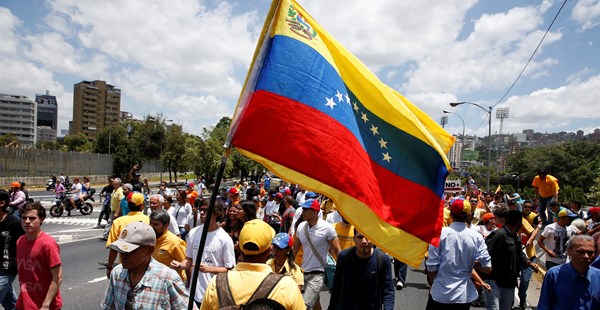Venezuela to pay for Russian imports in local cryptocurrency
Venezuela, which is suffering from depleted dollar reserves, hyperinflation and economic crisis, intends to pay for goods and services from Russia with its own cryptocurrency, the “petro”, Venezuelan Foreign Trade Minister José Vielma Mora announced.
According to him, this arrangement was discussed during the session of the bilateral intergovernmental commission in Caracas.
The first recipient of the Petro instead of dollars in Russia may be Russia’s truck manufacturer Kamaz, with whom Venezuela would like to create a strategic alliance, Mora stated.
“This concerns the purchase of components, spare parts, tires and batteries,” he explained, adding that the possibility of building a Kamaz truck assembly plant in Venezuela was also discussed.
According to the minister, Russia has expressed interest in purchasing various goods from Venezuela, including steel, aluminum, coffee, cacao, clothing and footwear.
“Apparently in exchange for newly acquired petros,” Forex Club analyst Ivan Marchena predicts.
If this is not the case, and Russia pays in dollars, then Venezuela will benefit on two accounts, observed Blockchain.ru CEO Vsevolod Cheremnykh. The country will buy Russian goods effectively in exchange for “candy wrappers”, and it will sell its own goods for hard foreign currency, according to the well-established norms of international trade.
The petro, which was launched in 2018 after Venezuela defaulted on its foreign debt, cannot be called a full-fledged cryptocurrency, Freedom Finance analyst Georgy Vashchenko points out: it is more like promissory notes and a way of bringing dollars into the economy while under US sanctions and with the collapse of oil mining.
Sale of the petro brought in $725 million, equivalent to roughly 40% of the foreign debt payments of the national oil mining company PDVSA which were overdue last year.
The petro is essentially the bolivar in “fashionable wrapping”, eToro analyst Mikhail Mashchenko observes: “Both currencies are issued centrally, which means they are completely dependent on the government’s whims, and thus it loses the primary characteristic of independent cryptocurrencies – decentralization. Furthermore, the value of both the petro and the bolivar depends on the country’s economy.”
During Venezuelan President Nicolás Maduro’s first term, the bolivar depreciated by a factor of 4000, and inflation in the country, which was once among the five wealthiest states in Latin America, accelerated to 2600%.
